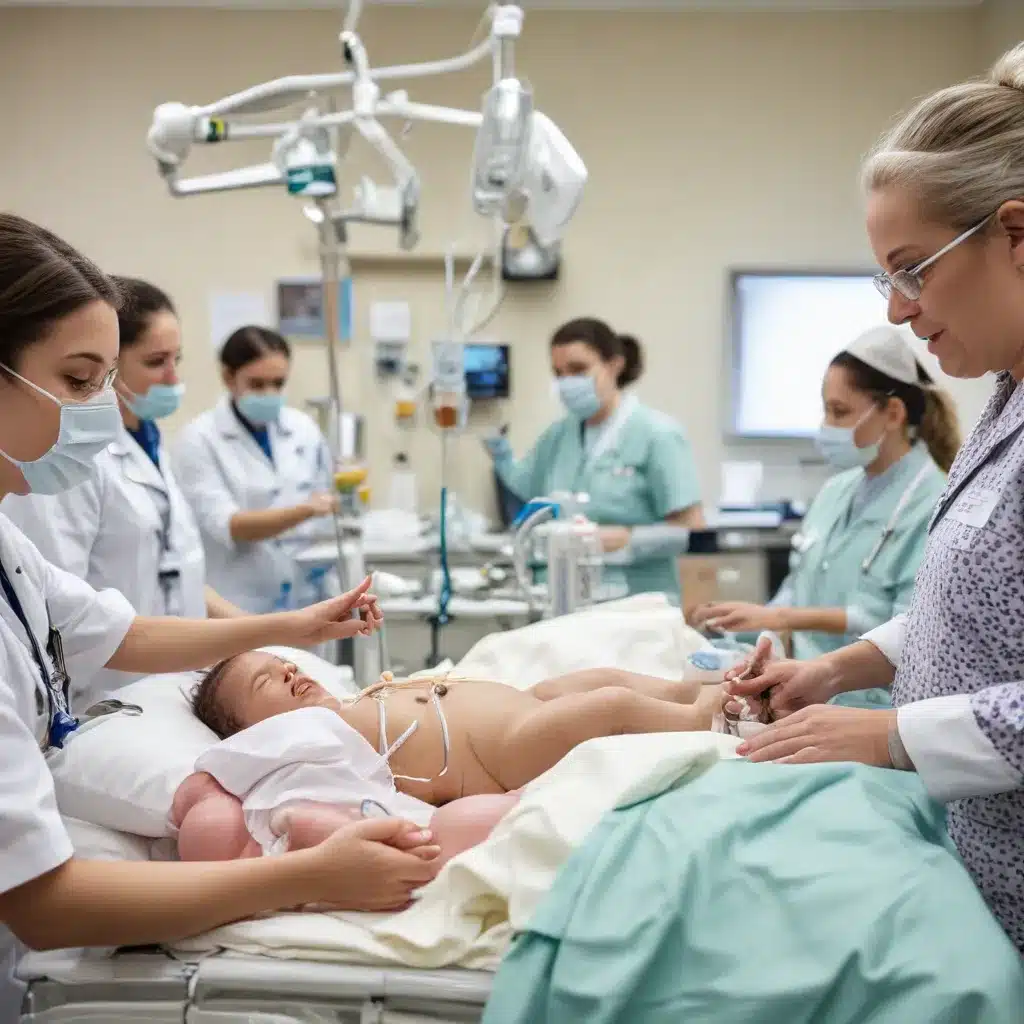
The Vital Role of Allied Health Professionals in Neonatal Care
As a seasoned construction professional and interior designer, I’ve seen firsthand the profound impact that allied health professionals (AHPs) can have on the lives of critically ill and premature infants in neonatal intensive care units (NICUs). These specialized healthcare providers, including physiotherapists, dietitians, occupational therapists, speech and language therapists, and psychologists, play a crucial role in addressing the complex medical and developmental needs of these vulnerable patients.
Bridging the Gap Between Medical and Developmental Care
Infants admitted to NICUs often require intense medical intervention to address their immediate physical health needs and ensure their survival. However, these infants also have significant developmental and psychosocial needs that must be addressed for their long-term wellbeing. There can be a perceived trade-off between medical and developmental care, as the high-intensity demands of the NICU environment may sometimes interfere with the infant’s sleep, sensory development, and parental involvement.
Fortunately, neonatal services are increasingly integrating medical and developmental care, recognizing that this holistic approach leads to better outcomes for the infant. This is where AHPs come into play, working as integral members of the interdisciplinary team to address all the needs of the infant, from physical rehabilitation to feeding support and parent-child bonding.
Embedding AHPs in Neonatal Services
The importance of AHPs in neonatal services is well-recognized, with professional bodies and Royal Colleges providing clear recommendations on the optimal number of whole-time equivalent (WTE) AHP staff required for each level of neonatal unit. These guidelines state that AHPs should be embedded as part of the core team within neonatal units, working collaboratively with medical and nursing staff to deliver comprehensive care.
Evaluating the Effectiveness of AHPs in Neonatal Care
To better understand the impact of AHPs in neonatal services, a recent rapid review was conducted, aiming to quantify the effectiveness of neonatal services with embedded AHPs compared to those without. The review also explored the effectiveness of early interventions provided by AHPs within neonatal units.
Evidence on Neonatal Services with Embedded AHPs
The review identified a limited amount of directly relevant evidence on the effectiveness of neonatal services with embedded AHPs. Most of the available studies focused on multidisciplinary team working or early interventions provided by AHPs, rather than directly comparing neonatal services with and without embedded AHPs.
The few studies that were found, however, provided some promising insights:
-
Improved Gross Motor Ability and Earlier Oral Feeding: Very low certainty evidence from a single before-after study suggested that neonatal units with embedded physiotherapists may lead to improvements in gross motor ability and earlier achievement of full oral feeding compared to standard physiotherapy care.
-
Inconsistent Findings on Nutritional Outcomes: Several before-after studies and a cohort study examining multidisciplinary nutrition support teams with dietitians showed inconsistent results in terms of mortality, length of stay, and time to full oral feeding. The heterogeneity in these findings may be due to differences in the populations studied and the primary focus on nutritional outcomes.
-
Enhanced Parent Involvement: A before-after study found that neonatal staff rated parents as much more likely to contribute to care planning following the implementation of a multidisciplinary developmental care team that included AHPs.
Evidence on Early Interventions Provided by AHPs
The review identified a stronger evidence base on the effectiveness of early interventions delivered by AHPs within neonatal units. By analyzing the findings from several systematic reviews, the review found moderate certainty evidence that these interventions are associated with:
-
Shorter Length of Stay: Early interventions involving oral stimulation or multisensory stimulation provided by AHPs were associated with a shorter length of stay in the NICU, ranging from around 1 to 2 weeks.
-
Improved Parental Sensitivity: Early interventions delivered by psychologists for parents of preterm infants during the NICU stay were associated with small but beneficial effects on parental sensitivity.
-
Better Cognitive and Motor Outcomes: Early interventions provided by AHPs, including those that continued post-discharge, were associated with small but meaningful improvements in general cognitive and gross motor ability in infancy compared to standard care.
Importantly, the review also found low certainty evidence that early interventions delivered by AHPs do not impact parental stress in the short-term.
Implementing AHP Recommendations in Neonatal Services
The findings of this rapid review support the idea that the involvement of AHPs in neonatal units is likely to improve outcomes for infants and their families. However, the review does not provide guidance on the exact numbers of AHP staff required, as this was outside the scope of the study.
Nonetheless, the review highlights the importance of implementing the recommendations made by AHP professional bodies and Royal Colleges regarding the optimal staffing levels for neonatal units. Currently, no Welsh neonatal unit has the recommended WTE number of AHP staff, which represents a significant gap in service provision.
Addressing this gap will require additional funding, workforce planning, and a strategic approach to recruiting, retaining, and training AHPs to work in neonatal services. The Local Builder London blog encourages readers to stay informed on these important developments, as they have the potential to greatly enhance the care and outcomes for the most vulnerable infants.
Conclusion: Unlocking the Full Potential of Neonatal Care
The rapid review underscores the vital role that AHPs play in delivering comprehensive, holistic care to infants in neonatal intensive care units. By bridging the gap between medical and developmental care, AHPs help to ensure that the unique needs of these vulnerable patients are met, ultimately improving their long-term physical, cognitive, emotional, and social outcomes.
As construction professionals and interior designers, we have a unique opportunity to support the integration of AHPs into neonatal services, whether through advocating for policy changes, contributing to specialized facility design, or collaborating with healthcare providers to create nurturing, family-centered environments. By working together, we can unlock the full potential of neonatal care and positively impact the lives of the infants and families we serve.


